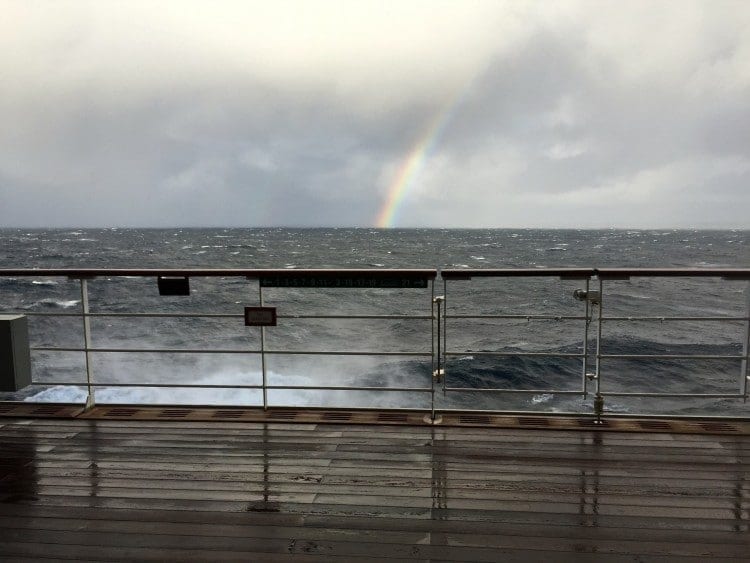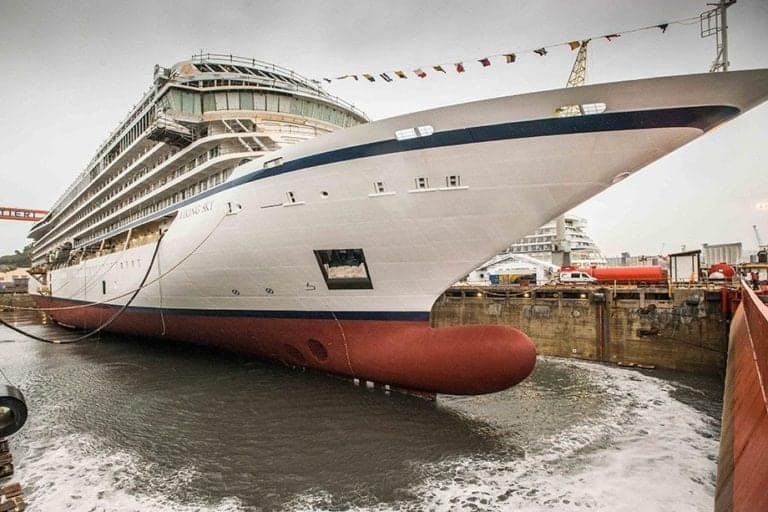Prevent Getting Seasick on Your Cruise

Know before you go and enjoy even the roughest of seas.
Whether you call it seasickness or the French mal de mer, it’s not something that you’d want to experience. What’s it like to be seasick? Imagine prolonged, debilitating nausea, dizziness and vomiting.
Eventually, almost everyone gets their proverbial sea-legs. But why suffer while getting acclimated when it is so easy to prevent getting seasick.
If a relaxing cruise vacation is your dream but you are panicked over the possibility of begin seasick, here are some do’s and don’t’s to avoid and prevent a ruined vacation at sea.
DO: Discuss seasick prevention means with your doctor.
If you are on any medications or are concerned about seasick prevention, make an appointment with your doctor a couple of weeks before your cruise. Discuss your concerns. Your doctor may recommend and prescribe the “patch” (scopolamine), or one of several over-the-counter seasick medications.
DO: Reserve a cabin low and center.
Book a stateroom that is on a low deck and in the middle of the ship. It doesn’t have to be an inside stateroom. A window or low balcony stateroom will work too, just so long as it is low and center. Many cruise lines have designed their ships with the swankiest and most luxurious staterooms on the highest deck. This is not the location to be if you are prone to motion sickness so be prepared and bring anti-nauseant medication. Conversely, Cunard’s Queen Mary 2 and the Carnival Breeze have mid-ship sheltered balcony staterooms as close to the waterline as possible. Perfect.
DO: Remember to eat.
Keep your stomach full. Despite the urge not to eat if you start to feel queasy, a simple meal will help prevent nausea. Do avoid overeating, though. Munch an apple and ask the dining room Maître ‘d if they have any candied ginger. Or stop at the sushi bar and ask for a few slices of ginger.
DO: Get outside.
If you’re trying to get by without medication and start to feel a bit woozy, get out on deck and stare at the horizon. This age-old technique really does work. Despite any movement of the ship, staring out at the horizon and focusing on its straight line does wonders to stop dizziness.
DON’T: Double-check your stateroom location.
Before you make the final payment, check the ship’s deck plan. Just because you paid for an inexpensive cabin doesn’t mean you are on a low deck. Also, don’t choose a stateroom all the way at the bow (front) or at the very aft (stern) even if it is on a low deck. It doesn’t matter how low or high you are, there will be bobbing up and down at the bow and fishtailing at the aft if seas get rough or in gale force winds.
DON’T: Retreat to your stateroom.
Avoid the indoors. Get out and walk the promenade or stretch out in a deck chair with a cup of tea or bouillon. While it may be tempting to scale the rock-climbing wall, you may want to reconsider until your seasick “wave” passes.You may want to avoid the casino. These mega-spaces, with their glaring and blinking lights, cigarette smoke and constant noise may induce dizziness, which can exacerbate nausea.
DON’T: Drink too much alcohol.
While some people feel better after a drink or two because it may calm their nervousness about becoming sick, like anything to excess, it can have adverse reactions. Especially if you are taking one of the anti-nauseous drugs.
DON’T: Wait until it’s too late!
Once seasickness has set it, it’s a challenge for even the best medication to relieve it in short order. If you are at all concerned, remember the old adage, better safe than sorry. Take your medication before the ship leaves the port. By the time you are out to sea, the chance of feeling seasick will be nil or greatly reduced. You can prevent getting seasick.
Don’t let worry or fear of being seasick prevent you from taking a cruise. Try a short 3- or 4-night cruise to test your meddle. Consult your doctor for medication advice, especially if you are booked on a transatlantic crossing or face several days at sea without a port call.





